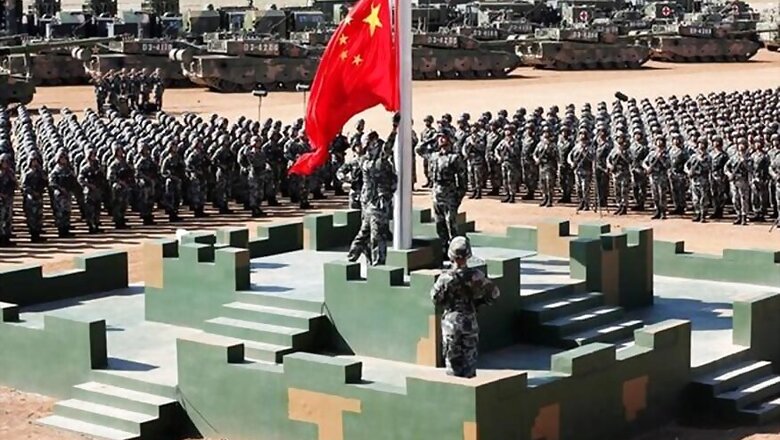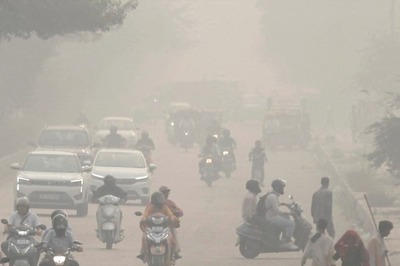
views
Beijing: China has brought its frontier troops, including those guarding its border with India, directly under the military command removing civilian control over them, a state-run daily reported on Thursday.
Communist Party of China (CPC), headed by President Xi Jinping, announced complete withdrawal of civilian-oriented frontier defence troops from the People's Armed Police (PAP) to enhance the ruling party's management of the country's armed forces, Global Times reported.
Troops that were formerly part of the armed police and managed by institutes of the State Council have now officially withdrawn from this system in a bid to fully implement the party's absolute leadership over the People's Liberation Army, and other national armed forces, the daily said quoting an article published by the Chinese People's Liberation Army (PLA)'s official WeChat public account on Wednesday.
The withdrawal of armed police force units engaged in civilian affairs would disentangle the previous complicated chain of command, Chinese military analysts said.
This will also mean that the border troops including those posted along the 3,488-km long Line of Actual Control (LAC) would be brought directly under the PLA which functions under Central Military Commission (CMC) headed by Xi.
Xi was re-elected last week for second five-year term as the president and the chairman of the CMC by China's rubber stamp parliament National People's Congress (NPC), days after it removed the two-term limit for president, paving the way for his continuation in power perhaps for life.
Xi heads the CPC, the military besides the presidency, making him the most powerful leader after party founder Mao Zedong.
Last December, the CPC removed the civilian control over PAP all over the country and brought it directly under the control of the CMC headed by Xi.
The 1.5 million-strong paramilitary police force previously was under a dual command structure of the CMC and the State Council or cabinet through the Ministry of Public Security.
It served as a backup for the military in times of war and domestically has a role in putting down protests and counterterrorism as well as border defence and firefighting, the Hong Kong based South China Morning Post reported earlier.
The latest orders included integrating the China's Coast Guard whose ships often sail close to the disputed islands with Japan in the East China Sea, into the CMC chain of command.
The Coast Guard earlier functioned under the leadership of State Oceanic Administration and it now start to serve their duties as armed police forces.
Armed police forces that previously answered to civil-related duties including gold, forestry and hydropower troops have been transferred to State institutions accordingly while no longer part of army service, the Global Times report said.
Li Daguang, a professor at the National Defence University in Beijing defended the CPC's controls over police saying such reforms are being carried out alongside ongoing reforms of the party, state institutions and the military.
Such reforms could significantly correct misnaming errors and stressed the absolute leadership of the party over its armed forces including the armed police, Li said.
Since he took over power in 2013, Xi has been stressing absolute leadership of the party over military and all other organs power in China.

















Comments
0 comment